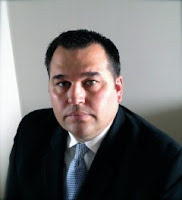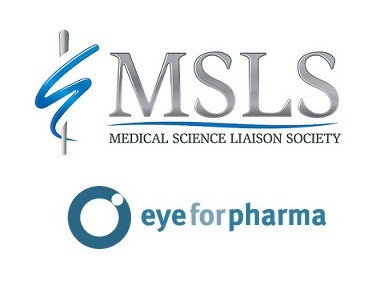Today I am really excited to present to you the first interview series at MD Salaries. My goal is to get in touch with physicians practicing medicine or working in non- clinical jobs and ask them questions that you would want to know about their careers. For the first interview in the series, I reached out to Dr. Samuel Dyer, CEO of The MSL Society, and he was happy to give you a glimpse into his life.
Dr. Dyer has over 12 years of experience in Medical Affairs ranging from a Medical Science Liaison (MSL) to MSL Management as well as launching a business and serving on executive boards for biotechnology companies. He has worked on numerous clinical trials and overseen the launch of both pharmaceuticals and medical devices. He is currently CEO and founder of the MSL Society which is the first not- for-profit organization dedicated to the MSL role which is directed by an executive board and advisory committee. It is an important resource, which is fully dedicated to all aspects and levels of the Medical Science Liaison career.
An MSL is usually a medical professional who has in-depth knowledge of a Disease State, Therapeutic Area, or Drug. In general, they are a field extension of a pharmaceutical company and serve as a medical resource for the Key Opinion Leaders they are interacting with. They act as a Liaison between the pharmaceutical company they work for and the KOL’s they are engaging with.
Generally the base salary will range from 100K to 120K to start. Maybe higher based on the specific therapeutic area or disease state experience an applicant brings to the role, plus a bonus of 15-30% depending on the company with full benefits.
Yes, definitely. A starting MSL can grow into a Sr. MSL and then advance into MSL management. You can also crossover into other roles within the Medical Affairs division such as Medical Information.
Yes, the MSL role has exploded over the last several years. Since 2005 there has been a 76% growth in the role at top 10 pharma companies while, at the same time, there have been dramatic cuts in other roles such as pharma sales reps.
Of course. Generally, the educational standard for an MSL role is a doctorate degree within the sciences, which would include an M.D., D.O., PharmD. or Ph.D.
It can be very difficult to break in and it will take a lot of commitment and persistence. The easiest way for someone to break into the MSL role is to apply for only those roles that they are truly a match for based on their Therapeutic Area or disease state expertise. For example if a candidate has multiple years of experience within Oncology, they should not waste time applying for roles within CNS for example. I actually started as an MSL by applying for roles in the same Therapeutic Area in which I did my Medical training and Ph.D. It was easier to position myself as having a level of expertise when interviewing.
During Medical School we were required to have additional training on special topics that we expected or wanted to focus on for our residency. I did a number of special projects focused on Rheumatoid Arthritis and Osteoarthritis. After Medical School, I also did my Ph.D. in those same topics. This effectively placed me in a position to enter my first MSL role with Merck in Rheumatoid Arthritis and Osteoarthritis.
I worked with a team of colleagues for over two years and we just launched the first ever Non-Profit MSL Society. I am the Chairman of the Board of the MSL Society. We recently held our first live webinar and are currently working on the first live MSL Society conference. The MSL Society is the resource for those looking to break into the MSL role or to learn more about the MSL career. The purpose of the MSL Society is to advance the global MSL career.
And that concludes our interview with Dr. Dyer. Stay tuned for more interviews from successful physicians! If you have any questions, feel free to post them in the comments section. For more information about Medical Science Liaisons or to join the MSL Society, click on the logo below.





